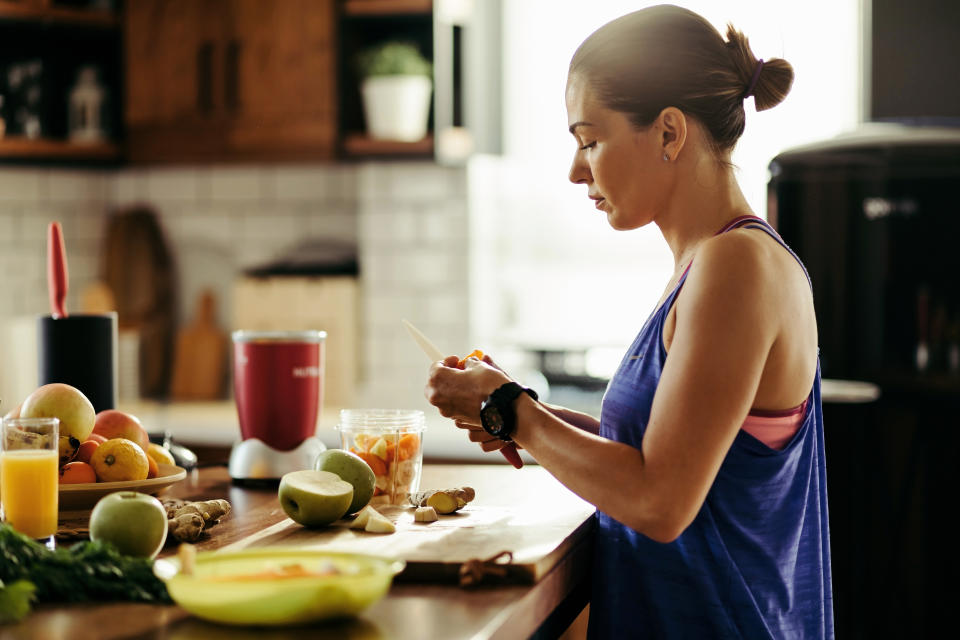Wuhan virus: When signing for packages use a stylus, and more tips

SINGAPORE — As the number of novel coronavirus cases crosses the 17, 200 mark globally and the death toll mounts, there’s been a global grab for surgical masks and hand-sanitisers. In Singapore, there have been 18 cases and a number remain in quarantine. Here is some advice from the experts on how else you can protect yourself.

Stay in
As some retreat to the relative safety of home, at least one online grocery retailer reports an increase in sales. RedMart has seen up to 40 per cent more grocery orders over the last week and a doubling in sales of health products in January compared to December. Professor Paul Thambyah, infectious disease specialist and President of the Asia Pacific Society of Clinical Microbiology and Infection, says limiting contact with others can help. “If you or your colleagues have respiratory symptoms, stay at home, see a doctor. Work from home if you can,” he adds.

Hands off
The sheer amount of bacteria on touchscreens means you should be cautious with other people’s smartphones, including when signing for deliveries. Professor Thambyah suggests you grab a stylus instead. In addition to daily temperature-taking, getting drivers to mask up and sanitise their hands, a Lazada spokesperson says that it is no longer requiring recipient signatures. “Instead, our delivery representatives will sign it on their behalf, with their consent, in their presence,” he said.

Shore up natural defences
Boosting your immune system, including through regular exercise and a healthy diet, can ward off viruses in general. Juliet Kelly-Wong, founder of The Natural Clinic, suggests loading up on foods rich in vitamin C such as thyme, cabbage, parsley, and citrus fruits, and zinc, found in ginger, high-quality meat and lentils. Vitamin D3 from sunlight can also help the immune system. Another essential: don’t panic. “Stress lowers our immunity. And not every fever or flu-like symptom is this virus, so be vigilant and smart,” she says.

Touch me not
If you’re trying to stay well, your biggest enemy is not the bug, it’s your hands, which come into contact with dozens of surfaces, from handrails to bus seats. Keep your hands off your face, says NUH’s Associate Professor Archuleta. “People forget to avoid touching their face or rubbing their eyes, nose or mouth with their hands.” Country Head of Grab Singapore Yee Wee Tang says that drivers have been told to clean and disinfect vehicles regularly, and numerous public buildings have stepped up on cleaning. The rest remains, quite literally, in your hands.
Know how viruses spread
For those worrying about products that come from China, Associate Professor Sophia Archuleta, Head & Senior Consultant, Division of Infectious Diseases, University Medicine Cluster, National University Hospital, assures that there is no reason to fear. “You cannot pick this up from any goods or foods imported from China. The virus can only be transmitted from a person already infected with the 2019-nCoV.”
Arm yourself with real information
Disinformation and misinformation spreads quicker than viruses and can be as dangerous. Experts advise sticking to reputable sources, like the MOH website or the World Health Organization, and checking sites that credibly address rumours. “You can’t always dismiss rumours outright, sometimes they can be based on a kernel of truth, so there are websites like ProMed where rumours are considered and explained,” says Professor Thambyah.
For the latest on the Wuhan virus crisis, head to sg.news.yahoo.com/health
Stay in the know on-the-go: Join Yahoo Singapore's Telegram channel at t.me/YahooSingapore
Related stories:
How the Wuhan virus will impact the Singapore Budget 2020
Some exhibitors drop out of Singapore Airshow due to coronavirus

 Yahoo Finance
Yahoo Finance 
